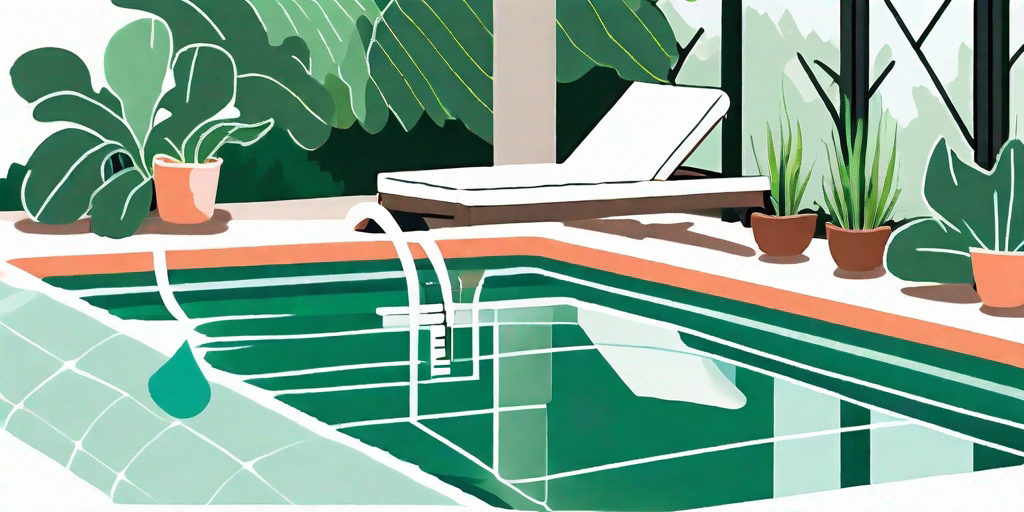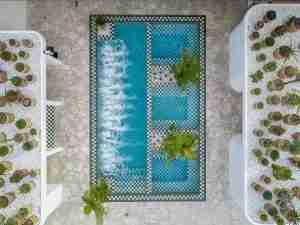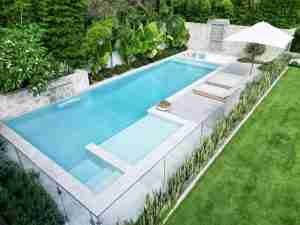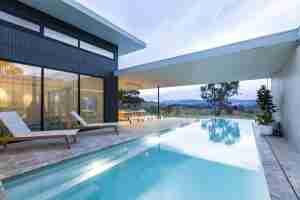Fibreglass pools have become increasingly popular in Australia, offering a range of advantages that make them an attractive option for homeowners. However, like any investment, it’s essential to weigh the pros and cons before making a decision. In this article, we will delve into the world of fibreglass pools, understanding their composition and exploring the advantages and disadvantages they bring to the table. We will also compare them to other types of pools, allowing you to make an informed choice as to whether a fibreglass pool is the right fit for your needs and preferences.
Understanding Fibreglass Pools
Fibreglass pools are constructed using a material known as fibreglass, which is a composite material consisting of fine glass fibers embedded in a polymer resin matrix. This combination results in a strong and durable material with excellent resistance to corrosion and weathering.
What is Fibreglass?
Fibreglass is a composite material made up of glass fibers and resin. The glass fibers provide strength and reinforcement, while the resin acts as a binder, holding the fibers together. This combination results in a material that is lightweight, strong, and resistant to chemicals, making it an ideal choice for pool construction.
Components of a Fibreglass Pool
A fibreglass pool consists of several components that work together to provide a seamless and enjoyable swimming experience. These components include the pool shell, which is made from layers of fibreglass material that are bonded together to create a strong and watertight structure. The pool also features a gel coat finish, which not only enhances its visual appeal but also protects it from UV rays and chemicals. Additionally, the pool is equipped with a filtration system, plumbing, and electrical components, ensuring proper circulation and maintenance.
The Advantages of Fibreglass Pools
Fibreglass pools offer numerous advantages that make them an appealing choice for homeowners. Understanding these advantages will help you determine if a fibreglass pool is the right fit for your needs.
Durability and Longevity
Fibreglass pools are highly durable and can withstand the test of time. Unlike concrete pools, which may crack or require frequent repairs, fibreglass pools are designed to be resilient and have a long lifespan. They are resistant to corrosion, fading, and staining, making them low-maintenance and cost-effective in the long run.
Maintenance and Cleaning
One of the significant advantages of fibreglass pools is their low maintenance requirements. The smooth and non-porous surface of fibreglass makes it difficult for algae and bacteria to adhere, reducing the need for extensive cleaning and chemical treatments. Additionally, the gel coat finish provides extra protection against stains and fading, ensuring that your pool maintains its pristine appearance with minimal effort.
Installation Process
The installation process of a fibreglass pool is generally faster and less disruptive compared to other pool types. Since fibreglass pools arrive pre-fabricated, the installation involves site preparation, excavation, and positioning the pool in place. This streamlined process means less time spent on construction and more time enjoying your new pool.
The Disadvantages of Fibreglass Pools
While fibreglass pools offer many advantages, it’s crucial to consider their limitations before making a decision.
Size and Shape Limitations
Fibreglass pools come in a variety of pre-designed shapes and sizes. While this allows for some customization, it may not offer the same level of flexibility as concrete pools, which can be fully customized to suit your preferences. If you have specific requirements regarding the shape or size of your pool, fibreglass pools may not be the ideal choice.
Repair and Refinishing
In the event of damage or wear, repairing a fibreglass pool can be more challenging compared to other pool types. It requires specialized knowledge and expertise to repair cracks or chips in the fibreglass shell. Refinishing may also be necessary over time to restore the gel coat finish. While repairs and refinishing are possible, it’s essential to factor in the associated costs and inconvenience.
Cost Considerations
While fibreglass pools are generally more affordable compared to other pool types, they do come with certain cost considerations. Customization options, additional features, and installation-related expenses can affect the overall cost of the pool. It’s important to evaluate your budget and determine if a fibreglass pool aligns with your financial resources.
Comparing Fibreglass Pools to Other Types
To make an informed decision, it’s helpful to compare fibreglass pools to other common types of pools.
Fibreglass vs. Concrete Pools
Concrete pools offer the advantage of customization, as they can be constructed in any shape or size to suit your preferences. However, they require more maintenance and may be prone to cracks and leaks over time. On the other hand, fibreglass pools provide durability and low maintenance at a more affordable cost. It’s important to assess your priorities to determine which option is best for you.
Fibreglass vs. Vinyl Liner Pools
Vinyl liner pools are another popular option in Australia. They are more affordable upfront but may require costly liner replacements every few years. Fibreglass pools, on the other hand, have a longer lifespan and lower maintenance requirements. Consider your long-term investment when comparing these two pool types.
Making the Decision: Is a Fibreglass Pool Right for You?
When determining if a fibreglass pool is the right choice for your needs, there are several factors to consider.
Assessing Your Needs and Preferences
Consider your desired pool size, shape, and design. If customization options are essential to you, a fibreglass pool may have limitations. However, if you prioritize durability and low maintenance, a fibreglass pool could be an excellent fit.
Evaluating Your Budget and Resources
Assess your financial resources and consider the overall cost of installation, maintenance, and potential repairs. Determine if a fibreglass pool aligns with your budget and if its long-term benefits outweigh the initial investment.
Considering Your Property’s Characteristics
Lastly, evaluate your property’s characteristics, including the available space, soil composition, and any accessibility limitations for installation. These factors can influence the feasibility and ease of installing a fibreglass pool.
Ultimately, the decision to invest in a fibreglass pool should be based on thorough research and careful consideration of your specific requirements. With its durability, low maintenance, and aesthetic appeal, a fibreglass pool can be an excellent choice that provides years of enjoyment for you and your family.




